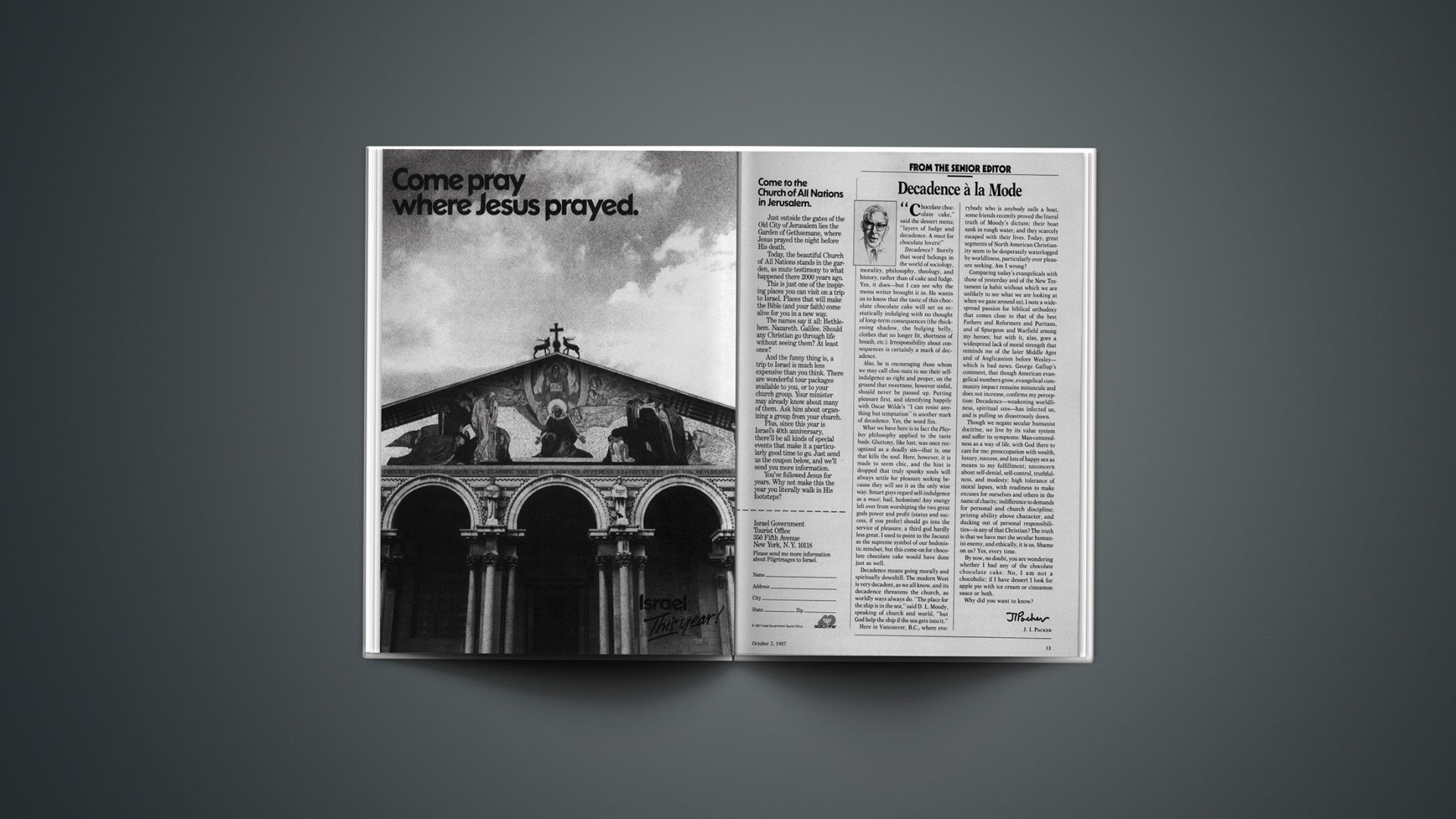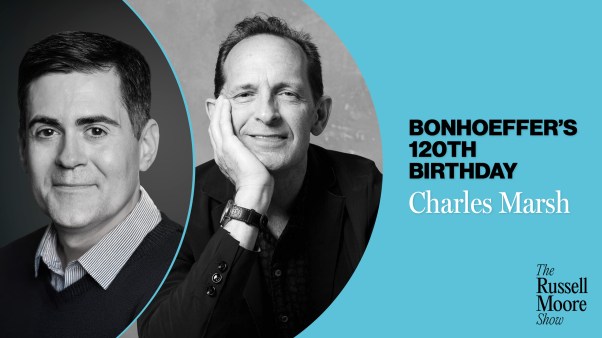“Chocolate chocolate cake,” said the dessert menu; “layers of fudge and decadence. A must for chocolate lovers!”
Decadence? Surely that word belongs in the world of sociology, morality, philosophy, theology, and history, rather than of cake and fudge. Yes, it does—but I can see why the menu writer brought it in. He wants us to know that the taste of this chocolate chocolate cake will set us ecstatically indulging with no thought of long-term consequences (the thickening shadow, the bulging belly, clothes that no longer fit, shortness of breath, etc.). Irresponsibility about consequences is certainly a mark of decadence.
Also, he is encouraging those whom we may call choc-nuts to see their self-indulgence as right and proper, on the ground that sweetness, however sinful, should never be passed up. Putting pleasure first, and identifying happily with Oscar Wilde’s “I can resist anything but temptation” is another mark of decadence. Yes, the word fits.
What we have here is in fact the Playboy philosophy applied to the taste buds. Gluttony, like lust, was once recognized as a deadly sin—that is, one that kills the soul. Here, however, it is made to seem chic, and the hint is dropped that truly spunky souls will always settle for pleasure seeking because they will see it as the only wise way. Smart guys regard self-indulgence as a must; hail, hedonism! Any energy left over from worshiping the two great gods power and profit (status and success, if you prefer) should go into the service of pleasure, a third god hardly less great. I used to point to the Jacuzzi as the supreme symbol of our hedonistic mindset, but this come-on for chocolate chocolate cake would have done just as well.
Decadence means going morally and spiritually downhill. The modern West is very decadent, as we all know, and its decadence threatens the church, as worldly ways always do. “The place for the ship is in the sea,” said D. L. Moody, speaking of church and world, “but God help the ship if the sea gets into it.”
Here in Vancouver, B.C., where everybody who is anybody sails a boat, some friends recently proved the literal truth of Moody’s dictum; their boat sank in rough water, and they scarcely escaped with their lives. Today, great segments of North American Christianity seem to be desperately waterlogged by worldliness, particularly over pleasure seeking. Am I wrong?
Comparing today’s evangelicals with those of yesterday and of the New Testament (a habit without which we are unlikely to see what we are looking at when we gaze around us), I note a widespread passion for biblical orthodoxy that comes close to that of the best Fathers and Reformers and Puritans, and of Spurgeon and Warfield among my heroes; but with it, alas, goes a widespread lack of moral strength that reminds me of the later Middle Ages and of Anglicanism before Wesley—which is bad news. George Gallup’s comment, that though American evangelical numbers grow, evangelical community impact remains minuscule and does not increase, confirms my perception: Decadence—weakening worldliness, spiritual AIDS—has infected us, and is pulling us disastrously down.
Though we negate secular humanist doctrine, we live by its value system and suffer its symptoms: Man-centeredness as a way of life, with God there to care for me; preoccupation with wealth, luxury, success, and lots of happy sex as means to my fulfillment; unconcern about self-denial, self-control, truthfulness, and modesty; high tolerance of moral lapses, with readiness to make excuses for ourselves and others in the name of charity; indifference to demands for personal and church discipline; prizing ability above character, and ducking out of personal responsibilities—is any of that Christian? The truth is that we have met the secular humanist enemy, and ethically, it is us. Shame on us? Yes, every time.
By now, no doubt, you are wondering whether I had any of the chocolate chocolate cake. No, I am not a chocoholic; if I have dessert I look for apple pie with ice cream or cinnamon sauce or both.
Why did you want to know?
J. I. PACKER










